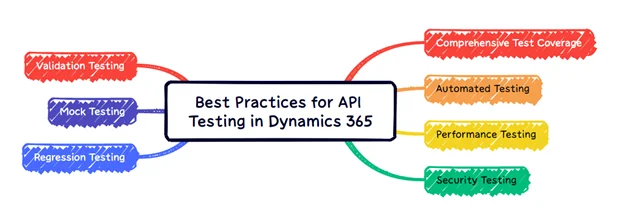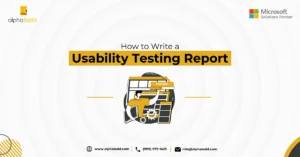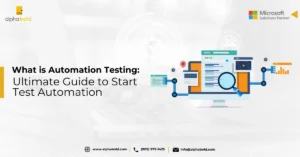Introduction
In this blog, we will discuss best practices for API testing in Dynamics 365, supported by industry data and insights to ensure your integrations are robust and reliable.
Modern businesses rely on seamless integrations across systems to drive operational efficiency and customer satisfaction. For organizations using Dynamics 365, thorough API testing is essential to verify that different software components communicate effectively, ensuring a stable, high-performing environment.
The Importance of API Testing in Dynamics 365
APIs (Application Programming Interfaces) serve as the fundamental framework enabling different software systems to communicate and work together seamlessly. In Dynamics 365, APIs enable integration with third-party applications, facilitating data exchange and enhancing functionality. Proper API testing ensures these integrations are reliable and perform as expected. According to a survey by Smart Bear, 91% of API professionals consider API quality and testing critical to their success.
Best Practices for API Testing in Dynamics 365
To ensure the reliability and performance of integrations within Dynamics 365, it’s essential to follow best practices for API testing. These practices help detect and resolve potential issues early, safeguard sensitive data, and ensure your system can handle the demands of real-world conditions. By leveraging comprehensive testing strategies, you can significantly improve the quality and efficiency of your APIs, leading to better system performance and stability.
1. Comprehensive Test Coverage:
2. Automated Testing:
Implement automated testing to increase efficiency and coverage. Tools like Postman, SoapUI, and Microsoft’s own Azure DevOps can be used to automate API tests. According to MarketsandMarkets, the test automation market is expected to reach $28.8 billion by 2024, highlighting the growing importance of automated solutions.
3. Performance Testing:
4. Security Testing:
Ensure Excellence with Expert Testing
Don't let preventable bugs slow down your progress. Request a consultation today to learn how our comprehensive software testing services can help maintain your software at the pinnacle of performance and reliability.
Request a Consultation5. Validation Testing:
6. Mock Testing:
Use mock servers to simulate API responses during the testing phase. This approach allows you to test different scenarios without impacting the live environment. According to the State of API 2020 Report, 71% of respondents use mocking in their API development process.
7. Regression Testing:
Read what’s the strategic difference between unit vs. functional testing: Strategic Blueprint: Unit Testing vs. Functional Testing Success.

Quantifying the Impact of Robust API Testing
Investing in robust API testing not only enhances system reliability but also delivers tangible benefits to your business. By adopting comprehensive testing strategies, organizations can significantly reduce operational risks, accelerate development timelines, and achieve measurable cost savings. Below are key metrics that demonstrate the value of effective API testing in a Dynamics 365 environment:
- Reduction in Integration Issues: Organizations that implement comprehensive API testing experience a 50% reduction in integration issues post-deployment, according to a report by Forrester Research.
- Improved Time-to-Market: Automated API testing can reduce testing time by up to 80%, enabling faster releases and a quicker time-to-market.
- Cost Savings: Early detection of API issues can save up to $10,000 per defect, considering the cost of fixes, potential downtime, and lost revenue.
Further Reading: 10 Best Automated UI Testing Tools In 2024.
Conclusion
For organizations leveraging Dynamics 365, robust API testing is not just a best practice but a necessity. By following these best practices—comprehensive coverage, automation, performance and security testing, validation, mock testing, and regression testing—businesses can ensure their integrations are seamless and their operations efficient. As APIs continue to drive digital transformation, investing in robust API testing will pay dividends in reliability, performance, and security.
At AlphaBOLD, we specialize in helping businesses implement and maintain seamless integrations within Dynamics 365. Our team of experts ensures your APIs are tested thoroughly, providing peace of mind and operational excellence. Reach out to us today to discover how we can help you achieve secure and effective API integrations.
Get Ahead of the Curve with Advanced Testing Services
Stay ahead in a competitive tech landscape with our advanced testing services. Let us show you how strategic QA can give your applications the edge they need. Schedule your consultation today!
Request a ConsultationExplore Recent Blog Posts








